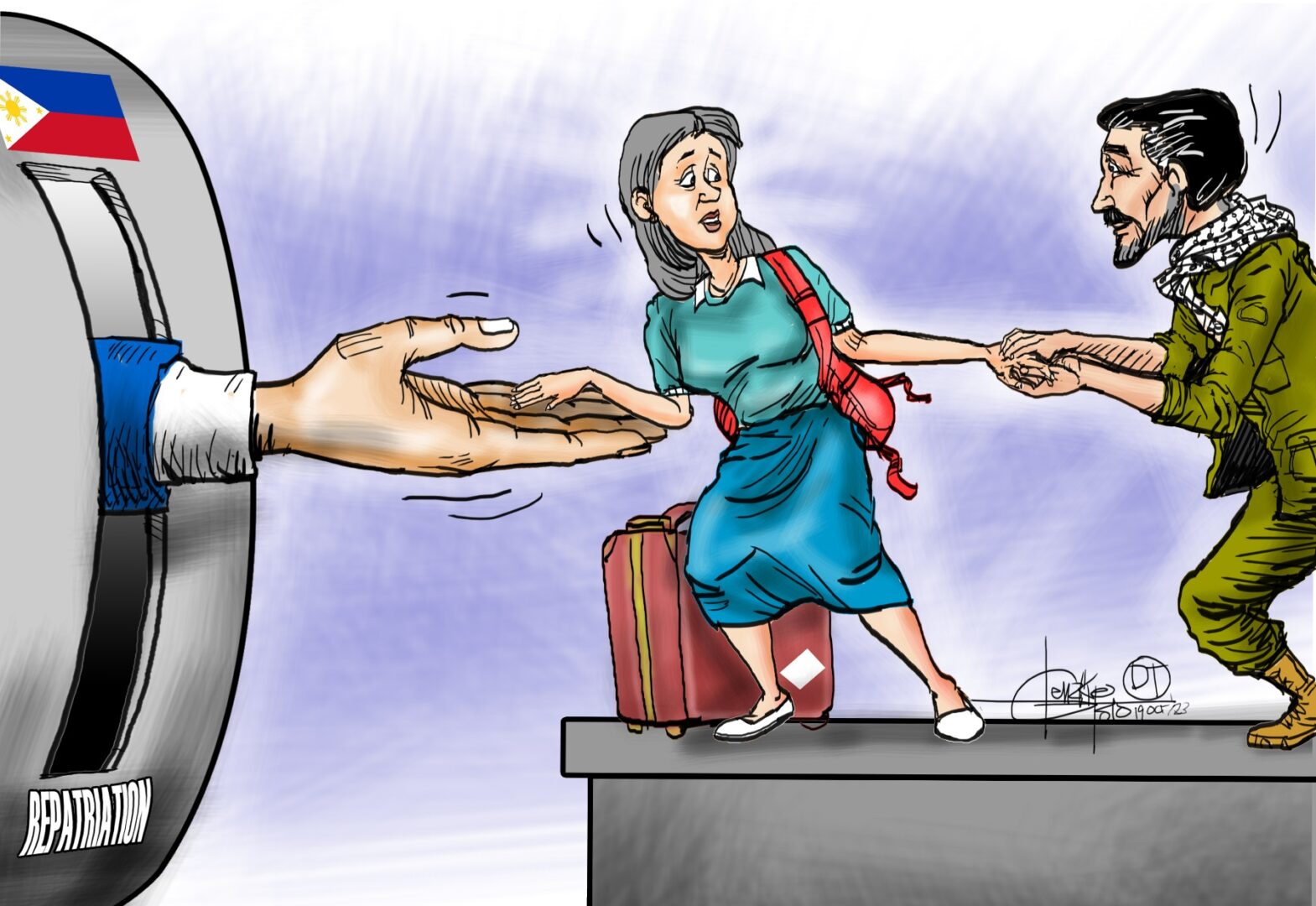Should the Philippines repatriate Filipino migrant workers along with their Palestinian husbands despite the danger of their being Hamas terrorists?
This question is now being raised as the government contemplates bringing back home our migrant workers caught in the crossfire of the Israel-Hamas conflict. Concerns have arisen regarding the safety of repatriating Filipino migrant workers and their Palestinian husbands, fueled by fears of potential ties to extremist groups like Hamas.
It is crucial to recognize the human dimension of this issue. Filipino migrant workers abroad often endure challenging conditions, with some forming relationships with locals, including Palestinians.
These unions are born out of genuine love and shared experiences, challenging the notion that all individuals associated with the region are potential threats. To repatriate these families en masse without due consideration is to overlook the human rights and personal choices of the individuals involved.
While acknowledging the human dimension, addressing legitimate security concerns is important. Like many nations, the Philippines faces the ongoing challenge of combating terrorism. Hamas, an organization that operates in the Palestinian territories, has been designated a terrorist group by several countries. This raises the question of whether the presence of Palestinian husbands among returning Filipino migrant workers poses a security risk to the Philippines.
The key to addressing this dilemma lies in individualized assessments and due process. Blanket assumptions that all Palestinian husbands of Filipino migrant workers are potential terrorists oversimplify the issue. Instead, thoroughly examining each individual’s background, activities, and affiliations is necessary.
Implementing a fair and transparent due process ensures that those with innocent intentions are not unfairly penalized while those who are potential security risks are properly identified and addressed.
Given the transnational nature of terrorism, international cooperation is essential. The Philippines should collaborate with the relevant international bodies and intelligence agencies to gather information on potential security threats. Sharing intelligence can help separate genuine security concerns from unfounded fears, enabling a more nuanced and practical approach to the repatriation dilemma.
Diplomatic channels play a crucial role in addressing the concerns of the Philippines and the Palestinian territories. Open and honest communication between the governments involved can lead to a better understanding of each other’s perspectives and concerns. This dialogue can pave the way for cooperative solutions that prioritize the Philippines’ security and the rights of the individuals involved.
Beyond security concerns, there are humanitarian aspects to consider. Forced repatriation of families could lead to the separation of spouses and families, causing emotional distress and potentially harming children. A balanced approach must be taken, prioritizing security without neglecting the welfare of the individuals affected.
In navigating the repatriation dilemma of Filipino migrant workers with Palestinian husbands, a balanced and nuanced approach is essential.
Blanket assumptions and knee-jerk reactions can lead to human rights violations and contribute to unnecessary tensions. Individualized assessments, due process, international cooperation, diplomatic channels, and humanitarian considerations should guide decision-making.
By addressing security concerns while respecting the rights and choices of individuals, the Philippines can uphold its commitment to national security and human rights, setting an example for responsible and compassionate governance.
